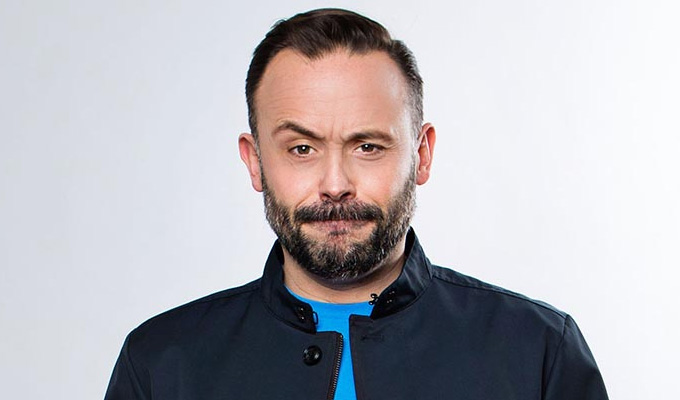
Mel Moon: Sick Girl
Note: This review is from 2015
Review by Steve Bennett
Mel Moon has quite the story to tell. After the birth of her second child five years ago she contracted a rare and nasty endocrine disorder that could kill her at any time, since it disabled all the body’s natural defences against things even as simple as stress.
It left her in such frequent, agonising pain that she wanted to take her own life, feeling that in many ways it was already over, even though it would leave her boys motherless. She investigated the Swiss clinic Dignitas and contacted euthanasia advice group Exit, of which she, at 35, is still the youngest member.
There’s a gallows humour among comics hearing any such awful story that ‘at least it’ll make a good Edinburgh show’. But the reality is more complex than that because when a story is so bleak, as it is here, it takes a real comic mastermind to negotiate through the lows while still getting the laughs.
Moon doesn’t quite do that. She skips over the darkest moments, restricting herself to mainly factual statements of what happened – which might be hardcore enough, but means she sidesteps sharing the extremes of feelings she must have gone though at the time, reducing the emotional connection.
The comedy, likewise, is of a generally mild kind. Moon is affable and chatty, making us all feel relaxed around a difficult subject. Anecdotes have a surprisingly light touch, the most amusing of which involves her partner Kris, who’s in the audience today, having to make a lifesaving injection into the upper-right quadrant of her right buttock. But generally the jokes avoid the subject – they’re more likely to be about her guilty crush on Jeremy Kyle as about anything medical.
The flipside is that her matter-of-factness makes her an approachable first-hand commentator on the difficult core topic of assisted suicide. But while the subject may be high on the political agenda – witness yesterday’s Sun front page – Moon insists that she is not taking a stance, just outlining her own experiences. She still advocates for the right to die, while also acknowledging she’s glad she didn’t go through with it, as medics finally figured out what was wrong with her and found a treatment that now allows her to manage her condition and live a Relatively Normal life.
If Sick Girl feels underdeveloped, a loose executive summary of the story, tailed with a feelgood ‘seize the day’ set piece involving the audience, there’s a reason for that. The show was put together at relatively short notice because Moon had been due to perform alongside pro-euthanasia campaigner Philip Nitschke... but after the Fringe programme had been put to bed, they went their separate ways over creative differences, thus making Moon probably the only person outside the Marvel universe to have a beef with a Doctor Death.
Yet the comedy section of the Fringe programme is probably not the right place for the tale in its current state - although it would make an engaging talk on critical illness, for an audience with different expectations. And I can see a powerful, moving yet eminently readable book coming from this story, which certainly deserves to be told.
Review date: 15 Aug 2015
Reviewed by: Steve Bennett
Reviewed at:
Laughing Horse @ The Counting House








